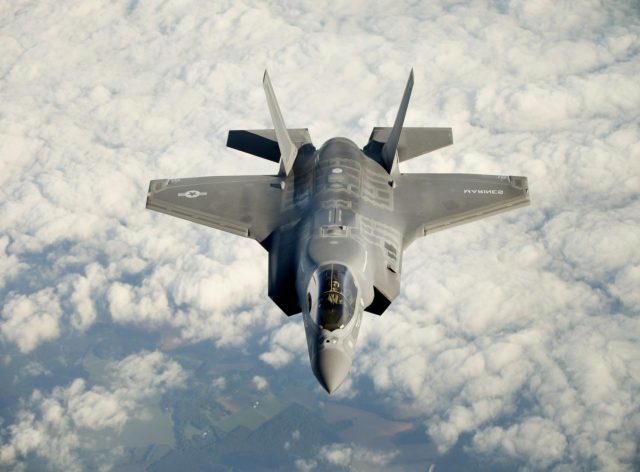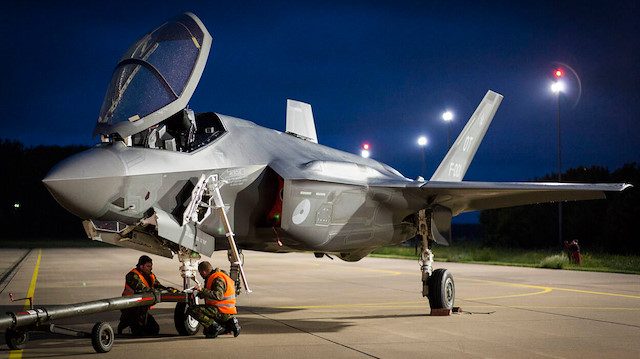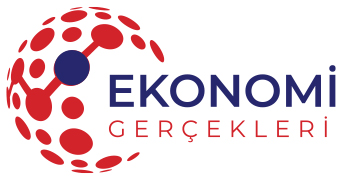Geleceğin savaş uçağı olarak adlandırılan F-35’in üretim programı uzun yıllardır devam ediyor. Ancak Türkiye ile ABD arasındaki S-400 krizi projenin gidişatını da etkiliyor.
F-35 programında İngiltere, Avustralya, İtalya, Türkiye, Norveç, Hollanda, İsrail, Japonya, Güney Kore ve Belçika yer alıyor.
Amerikan üretici Lockheed Martin geçen yıl ABD ve müttefik ülkelere 91 adet F-35 savaş uçağını teslim etmişti.

Türkiye neden kilit konumda?
F-35 projesinde Türkiye’den 8 şirket görev yapıyor. Bu şirketler ve görevleri şu şekilde:
Alp Havacılık: 2004’ten beri programda. F-35 gövde yapısı ve montajları, iniş takımı bileşenleri ve titanyum entegre bıçak rotorlarını içeren 100’ün üzerinde F-35 motoru parçası yapıyor.
AYESAŞ: F-35 bileşeni olan iki büyük füze uzak arayüz ünitesi ve kokpit ekranı yapıyor. Türkiye kokpit ekranında vazgeçilmez üretici konumunda. Çünkü AYESAŞ, iki temel F-35 bileşeni olan füze uzaktan kumanda arabirimi ve panoramik kabin ekranı elektronik kartlarının tek tedarikçisi.
Fokker Elmo: Hollandalı şirket İzmir’de üretim yapıyor. F-35 Elektrik Kablolama ve Ara Bağlantı Sistemi’nin (EWIS) yüzde 40’ını üretiyor. Ayrıca tüm merkezi kesit kablolama sistemlerini TAI için üretiyor.
HAVELSAN: 2005’ten beri F-35 eğitim sistemlerini destekliyor.
Kale Havacılık (Aerospace): 2005’ten bu yana programda olan şirket Türk Havacılık ve Uzay Sanayi ile F-35 uçak yapı ve montajlarını üretiyor. Ayrıca iniş takımı kilit tertibatının tamamında tek kaynak tedarikçisi. Kale, Amerikan havacılık ve uzay şirketi Pratt & Whitney ile İzmir’de F-35 motoru için üretim yapıyor.
ROKETSAN ve TÜBİTAKSAGE: Güdümlü füze SOM-J’nin geliştirilmesi, entegrasyonu ve üretimini stratejik olarak yönetiyor.
Turkish Aerospace Industries (TAI): Şirket şu anda her F-35 uçağına giren birçok donanımı tedarik ediyor. Amerikan savunma şirketi Northrup Grumman ile sigortaları üretiyor. İniş-kalkış sistemleri, uçağın en karmaşık bölümlerinden F-35A orta gövde parçalarını üretiyor. Kompozit kaplamalar, silah bölmesi kapıları ve fiber yerleştirme kompozit hava giriş kanallarını üretiyor.

Sonuç olarak Türkiye, F-35 projesi için 12 milyar dolarlık 800 parça üretiyor. Kimsenin kabul etmek istemediği şey Türkiye F-35 programında sadece jetleri satın alan ülke konumunda olmaması. Yani Türkiye jetlerin üretim sürecinde hayati konumda. Üretimdeki varlığının önemini bir yana bırakırsak F-35’lerin önemli bakım işlerinin yapılacağı yer de Türkiye olacak.
New York Times’ın haberine göre Türkiye, F-35 programına şimdiden 1,25 milyar dolardan fazla yatırım yaptı. Ancak şimdiye kadar yapılan yatırım ABD merkezli bir başka kaynakta, Washington Times’da, Bush yönetimi sırasında ABD Savunma Müsteşar Yardımcısı olarak görev yapan Jed Babbin tarafından 8 milyar olarak lanse edildi.
Durum ne olursa olsun Türkiye’yi F-35 programından çıkartmak projenin kendisine de büyük zarar verecek. Üstelik Washington’da hizmet veren Government Accountability Office adlı bir devlet biriminin raporlarına göre programda düzeltilmesi gereken 966 adet hata bulunuyorken…[:en]President Erdogan: “An F-35 project excluding Turkey is doomed to fail.”
But is “F-35 without Turkey” is really possible?
The production phase of the F-35, which is called as the “warplane of the future” is going on since long years. But, the S-400 standoff between Turkey and the USA affects the course of the project.
The United Kingdom, Australia, Italy, Turkey, Norway, Netherlands, Israel, Japan, South Korea and Belgium are the countries in the F-35 project.
Lockheed Martin, the American company producing the F-35 fighter jets, delivered 91 aircrafts to the USA and the allied countries.
Why Turkey is in key position?
8 Turkish companies take part in the F-35 project. Here are these companies and their duties in the project:
Alp Aviation: It is included in the program since 2004. It produces more than 100 engine parts of the aircraft, including the anatomy and montage parts, landing gears components and titanium integrated knife rotors.
AYESAS: It produces two large missile interface units and the cockpit screen. Turkey is in an irreplaceable position for the production of the cockpit screen because AYESAS is the only provider of the two fundamental parts of the F-35: the missile remote control unit and the electronic cards of the panoramic cabin screen.
Fokker Elmo: The Dutch company is operating in Turkish city of Izmir. It produces 40% of the electrical wiring interconnect system (EWIS). Also, it produces all the central cross-section wiring systems for the Turkish company TAI.
HAVELSAN: It supports the F-35 training systems since 2005.
Kale Aerospace: The company is in the project since 2005 and it produces the structure and montage parts together with the Turkish Aerospace Industries Incorporation. Additionally, it is the only provider of the landing gears keys. Kale is also conducting co-production with the American aerospave company Pratt & Whitney for the F-35 engine.
ROKETSAN and TÜBİTAKSAGE: These companies are in charge of developing, integrating and producing of the aircraft’s guided missile SOM-J.
Turkish Aerospace Industries (TAI): The company provides many equipment of the all variants of the F-35 fighter jets. For instance, it produces the safety nets with the American defense company Northrup Grumman. It produces landing / take-off systems and the middle body parts, which are the among the most complicated parts of the aircraft. It produces the composite plates, blister gates and fiber fitting composite intake air ducts.
In conclusion, Turkish companies produce 800 pieces worth $12 billion. The fact no one wants to admit is that Turkey is not only a buyer in the F-35 project. It has a critical position in the production of the aircraft. Besides her role in the production, Turkey will be the maintenance and repair hub of the aircraft in Europe and wider region.
According to a New York Times report, Turkey has so far invested more than $1.25 billion in the project. Another media report in Washington Times, puts the number much higher as $8 billion, based on the statements of Deputy Secretary of State Jeb Babbin under the Bush administration.
Whatever the circumstances are, excluding Turkey from the project will be very harmful for the project itself. Especially, there are currently 966 detected errors which have to be fixed in the program according to the Washington based Government Accountability Office.
